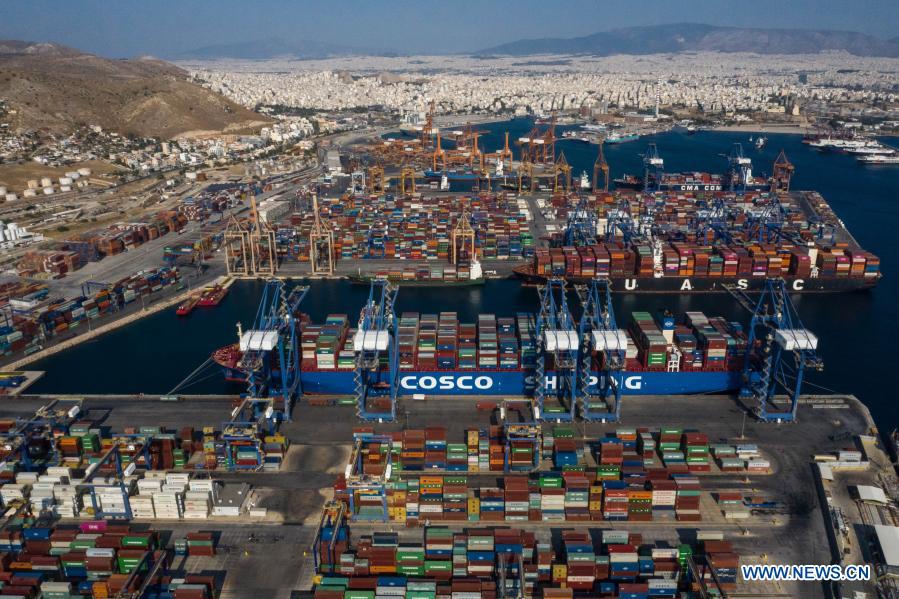
Aerial photo taken on Sept. 6, 2019 shows a cargo ship of COSCO Shipping Lines at the Port of Piraeus in Greece. (Photo by Lefteris Partsalis/Xinhua)
Chinese terminal operator COSCO Shipping Ports struck a deal with Container Terminal Tollerort in the Port of Hamburg, Germany by acquiring a 35 percent stake in the German terminal, a move that will boost the port's throughput and efficiency as the coronavirus pandemic disrupts global shipping and drives up shipping rates.
The Port of Hamburg, the largest port in Germany and the second-largest in Europe, enjoys a pivotal location as one of the most important trade hubs from Europe to China. It is also a significant node for China-EU freight trains.
Throughput exceeded 8.5 million standard containers in the crisis year 2020.
Zhang Dayu, managing director of COSCO SHIPPING Ports, said that Container Terminal Tollerort in the Port of Hamburg is an important logistics hub in Europe and enjoys favorable natural conditions, such as a good location, water depth and connections to the hinterland, which has very promising prospects and great potential for development, according to a statement sent by the company to the Global Times.
Analysts expect the deal to better protect Chinese ships' operation, improve punctuality, and shorten delivery dates.
"This deal will greatly facilitate COSCO's maritime trade as well as bilateral trade between China and Europe. It will also strengthen the company's position in sea transportation in European countries and those along the Belt and Road Initiative," Wu Minghua, a Shanghai-based veteran shipping industry analyst, told the Global Times on Wednesday.
The route to Europe is one of the major three maritime routes in the world and also the most lucrative, with the largest amount of trade volume, Wu said.
He added that the deal will benefit Chinese companies to ship foreign trade goods more efficiently and inexpensively as China-Europe trade continues to grow.
In the first eight months of the year, the EU was China's second-largest trade partner with bilateral trade up 22.1 percent year-on-year to 3.42 trillion yuan ($530 billion). China was the EU's largest trade partner in the first five months, according to Eurostat.
Even if congestion at US ports keeps worsening, Wu said that it's tough to invest in the US shipping sector. "The current China-US business environment is not very favorable, and signs of cooperation are not strong, but China and the US should increase cooperation in the shipping industry," he said.

